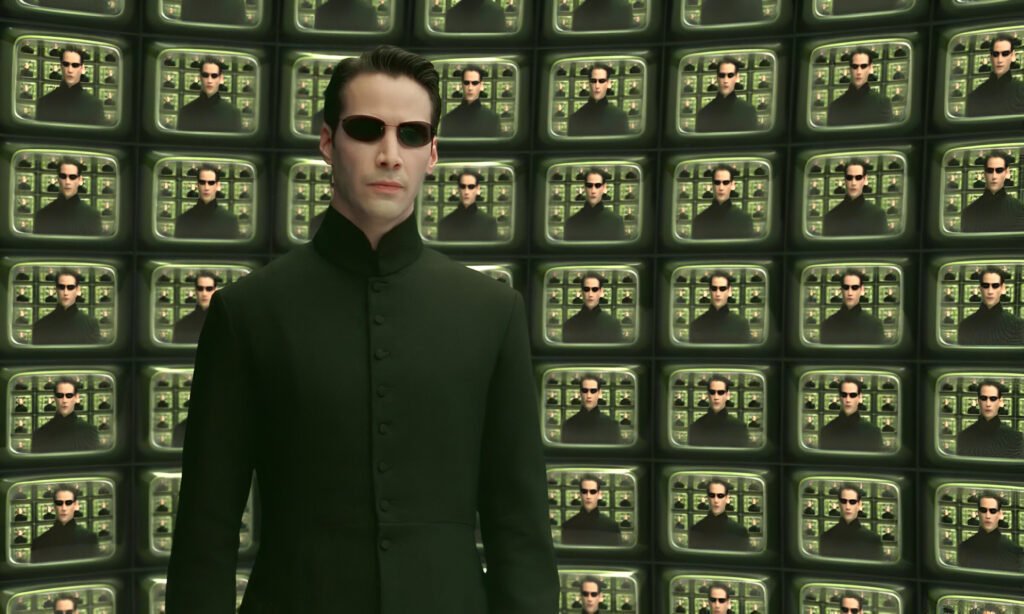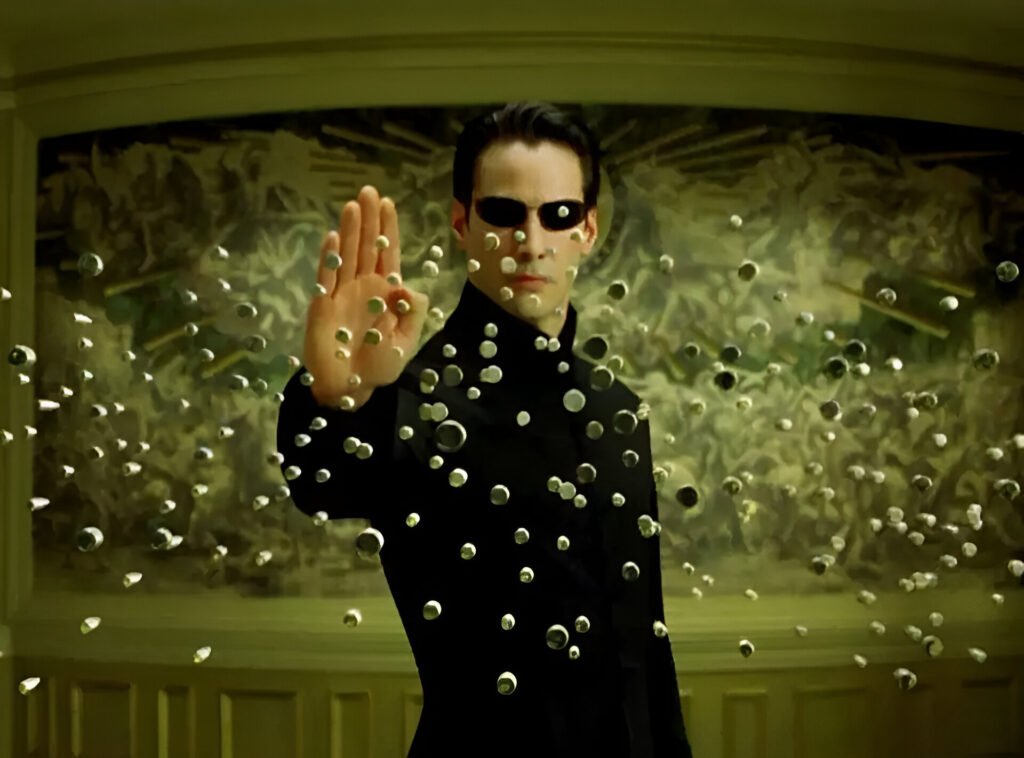
UK physicist Dr. Melvin Vopson claims we might be living in a simulation similar to The Matrix, based on his groundbreaking research connecting information theory to physical reality.
Ever had that weird feeling that something’s just slightly off about reality? Like maybe we’re all just characters in some advanced civilization’s video game? Well, grab your red pills, folks, because a UK scientist has just dropped a theory that sounds like it was ripped straight from a sci-fi screenplay. And honestly? It’s freaking me out a little.
The scientist’s claim will make your head spin.
Dr. Melvin Vopson, a physicist at the University of Portsmouth, isn’t some random conspiracy theorist ranting on obscure internet forums. He’s a respected scientist who’s just published a paper suggesting our entire universe might be a sophisticated computer simulation. Yeah, you read that right. Not as a fun thought experiment, but as a legitimate scientific hypothesis backed by mathematical models and observational data.
His claim? That reality as we know it might be generated by a “master” algorithm—basically a super-advanced AI system that’s created and maintains everything we experience as “real.” It’s The Matrix with a PhD, essentially.
Could ‘The Matrix’ actually be onto something?
Remember that mind-bending scene in The Matrix where Neo takes the red pill and discovers humans are actually trapped in a simulated reality while machines harvest their bodies for energy? When the Wachowskis released that film back in 1999, it blew everyone’s minds and had us all questioning reality for about five minutes before we went back to our normal lives.
But here’s the wild part—what if those filmmakers were accidentally prophetic? The idea of simulation theory has been floating around philosophical circles since long before Keanu Reeves was dodging slow-motion bullets. Philosophers like Nick Bostrom have argued that if civilizations continue advancing technologically, creating simulated realities would eventually become possible—and if that’s true, odds are we’re already in one.
Look, I’m not saying I’m ready to start searching for glitches in the Matrix or anything, but when actual physicists start suggesting similar ideas… well, it does make you wonder.
Dr. Vopson’s research isn’t just science fiction.
So what exactly is Dr. Vopson’s evidence? It boils down to something called the Mass-Energy-Information Equivalence Principle. Basically, he proposes that information is a fundamental building block of the universe—as fundamental as mass and energy—and that it has its own mass. This isn’t just wild speculation; his research has been published in peer-reviewed journals, including AIP Advances.
“The fact that information has mass-energy equivalence means it influences the gravitational field in the universe,” Dr. Vopson explained in a recent interview. “If information is the fundamental building block of everything in the universe, it strongly suggests that our reality could be a product of a master algorithm.”
In other words, if reality is fundamentally made of information (rather than just matter and energy), that aligns perfectly with how a computer simulation would be structured. Trippy, right?
His previous research laid the groundwork.
This isn’t some random theory Dr. Vopson just cooked up overnight. Back in 2019, he proposed the radical idea that information is physically real and has mass. According to his calculations, the mass of information stored on a typical iPhone is around 100 billionths of a gram. Tiny, sure, but not zero.

He even went as far as proposing experimental methods to measure the mass of a single bit of information. The mind-boggling implications? If information has mass, then all digital data—like the text of this article you’re reading right now—has a measurable weight. Your Spotify playlists might literally be making your phone heavier. By, like, an absurdly small amount, but still.
The connection to simulation theory came when he realized that if information is physical and fundamental, our entire universe could essentially be a complex information structure—not unlike a sophisticated computer program.
Biology defies gravity in a suspiciously coded way.
Here’s where things get even weirder. Dr. Vopson’s latest research examines how biological systems seem to defy gravity in ways that non-living systems don’t. Think about it—plants grow upward against gravity. Animals move in ways that temporarily overcome gravitational forces.
“This defiance of gravity by biological systems could be evidence of external computational processing power,” he argues. In layman’s terms, living things might be getting extra processing power from whatever’s running our simulation, while inanimate objects follow simpler physics rules that require fewer computational resources.
It’s like how video game developers put more details and physics into main characters while background elements get simpler treatment. The trees in the distance don’t need complex algorithms because you’re not interacting with them directly.
Is this starting to sound uncomfortably plausible to anyone else?
I mean, sure, there are plenty of alternative explanations. Evolution has specifically adapted living organisms to work within and sometimes temporarily counteract gravity. But the mathematical patterns Dr. Vopson has identified between biological systems and information theory are, at minimum, fascinating.
So… red pill or blue pill?
Whether you find Dr. Vopson’s theories mind-blowing or eye-roll-inducing probably depends on your personal threshold for existential crises. The scientific community remains heavily divided, with many physicists arguing his conclusions are premature at best.
But simulation theory has some pretty heavyweight proponents, including Elon Musk, who famously said there’s only a “one in billions” chance we’re living in base reality rather than a simulation.
For what it’s worth, even if we are living in a simulation, it doesn’t change much about our day-to-day existence. Your coffee still tastes like coffee, your relationships are still real to you, and you still have to pay your taxes (sorry about that).
The biggest question might be: if we are in a simulation, who or what created it, and why? Are we science experiments? Entertainment? A massive ancestral simulation created by our own descendants?
And more importantly, would knowing for sure change how you live your life? That’s a question even the most advanced physics can’t answer for you.







